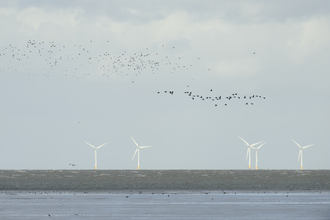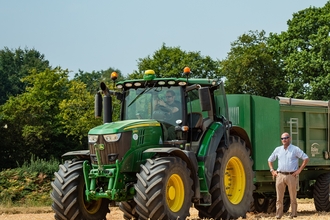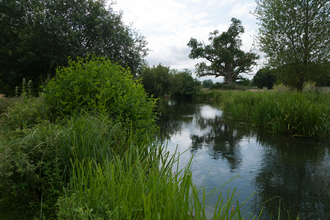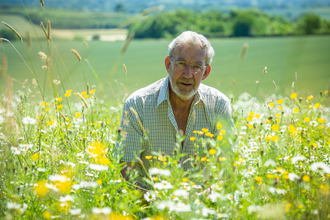It's not "nature or development". It's both.
A Wilder Future helps everyone benefit from and enjoy wildlife near them.
However, parts of the UK Government's new Planning and Infrastructure Bill currently threaten nature's recovery in England. This isn’t good for wildlife, or people.
Don’t let this Bill become law without the safeguards needed to protect nature.
The UK Government needs to understand that high-quality, sustainable development doesn't need to be at the expense of struggling wildlife or climate. It’s not a one or the other decision. With some specific changes to the Bill that are easy to agree to now, we can have wilder, healthier homes in the future.
What you can do
Want development to work in harmony with nature?
Please co-sign our open letter - you can also add your thoughts about the "nature vs development" debate. This open letter will go to Angela Rayner, the Deputy Prime Minister and Secretary of State for Housing, Communities and Local Government, with your thoughts included.
After you sign, you can take the opportunity to email the Editor of your local newspaper too. Local media is a great way to highlight your concerns to others. Also, if you mention your MP it's likely that their press monitoring service will alert them to what you are saying, so it is also a good way to get your MPs attention.
Letter to Secretary of State, Angela Rayner MP
Dear Secretary of State,
Planning & Infrastructure Bill: Please change course
The Wildlife Trusts and our supporters work to recover nature, so that everyone can benefit from a flourishing natural world. We have been pleased to work with Government to achieve this, but the Planning & Infrastructure Bill now threatens this shared mission.
Part 3 of the Bill would allow developers to pay into Environmental Delivery Plans (EDPs) to satisfy their obligations when pursuing developments that would impact on features protected by nature laws. The concept could work in some circumstances with strict safeguards, but unfortunately this is not the approach the Government has chosen. Essential protections for nature are now threatened.
The Bill creates no requirements for EDPs to be based on ecological evidence, no requirement to demonstrate that EDPs will significantly improve environmental features, and no requirement to prioritise avoiding harms to nature. In addition to this absence of safeguards, continued inaccurate rhetoric from the Chancellor and the Prime Minister about nature being a ‘blocker’ to development throws significant doubt on the Government’s intentions in bringing the proposals forward.
Committee stage of the Planning & Infrastructure Bill provides a chance for you to change course. Amendments have been tabled by MPs that would require EDPs to be based on scientific evidence, to meet a high legal test, to prioritise avoiding harm and to deliver benefits for nature ahead of damage. We urge you to accept these constructive amendments, along with further nature recovery amendments to other parts of the Bill, including proposals to better protect chalk streams and to designate ‘Wildbelt’ sites. Taken as a package, these changes to the Bill would begin to stave off the threatened environmental regression without hindering the delivery of new homes.
Your department’s willingness to accept these vital amendments at the committee will be the test of whether the Government is serious when it says it wants to preserve and grow space for nature, alongside building new homes for people. If this test is failed, The Wildlife Trusts will be forced to oppose this part of the Bill. Nature cannot afford the blow that Part 3 in its current, unamended state would inflict.
Poll after poll show that the British public agree with us that new homes can and should be delivered alongside the recovery of wild spaces. We urge you to return to this shared understanding, before it is too late.
Planning and Infrastructure Bill Priorities
Read more about them below.
This bill needs to provide confidence that any changes result in a win for nature.
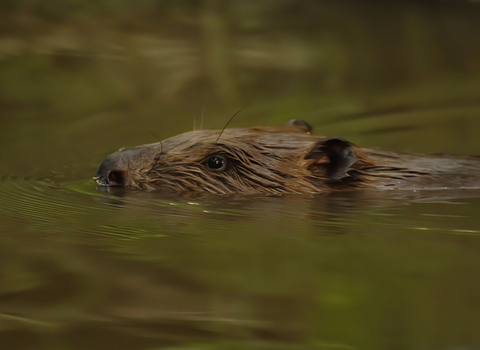
Beaver swimming with its head just above the water © Russell Savory
Include strong safeguards
It is CRITICAL that strong safeguards are embedded to ensure key environmental principles are upheld. First and foremost, ANY development should seek first to avoid harm and measures to improve nature should be secured in advance of development where possible. New plans intended to manage development impacts on nature NEED to be underpinned by scientific evidence and pass a strong legal test that they will significantly boost nature recovery before being adopted.
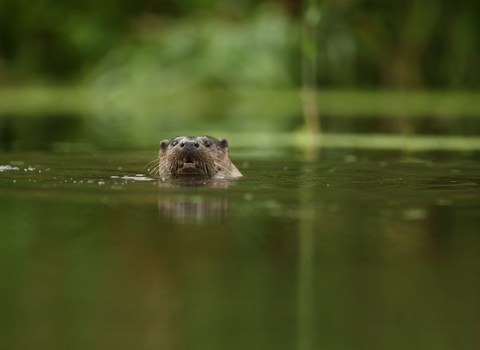
Luke Massey
Include protecting nature
This bill needs to be aspirational. It MUST take steps to protect and recover nature. We want Ministers to introduce new protections for chalk streams, local wildlife sites and wildbelt. It is CRUCIAL for all new development to include nature in their design.
More information
If you would like more information, The Wildlife Trusts have produced a series of briefings around some of the key nature policy issues, which can be downloaded below.




